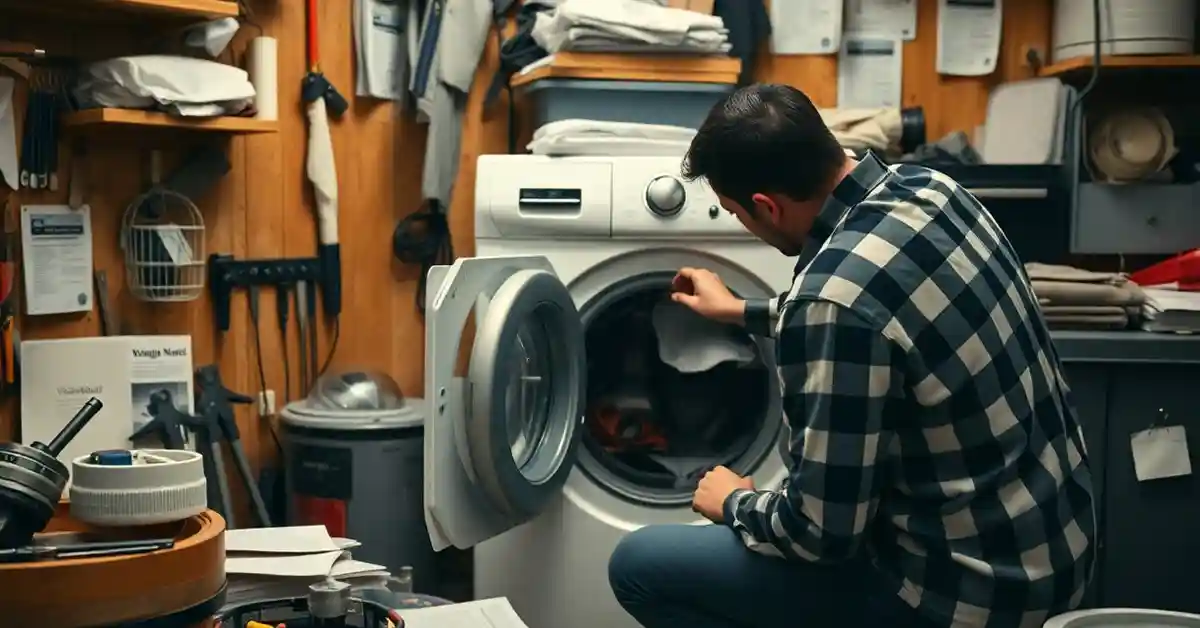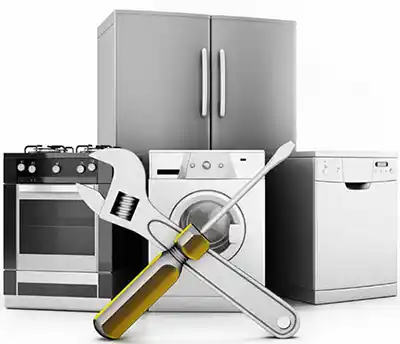
Most individuals who aspire to become proficient in appliance repair find that the journey involves a mix of hands-on experience, formal education, and self-directed learning. You can start by exploring online resources, enrolling in specialized courses, and gaining practical skills through internships or apprenticeships. Understanding the fundamental principles of electricity, mechanics, and troubleshooting techniques will empower you to diagnose and fix various appliances effectively. With dedication and the right resources, you'll develop the expertise needed to excel in the field and provide valuable services to others.
Understanding Appliance Types
A fundamental aspect of learning appliance repair is understanding the different types of appliances you will encounter. Each category often requires specific knowledge and skills tailored to its design and function. Familiarizing yourself with these appliance types can ease your learning process.
- Major Appliances
- Small Appliances
- Smart Appliances
- Commercial Appliances
- Portable Appliances
Assume that mastering these areas will set a strong foundation for your appliance repair journey.
| Type | Examples |
| Major Appliances | Refrigerators, Washers, Dryers |
| Small Appliances | Blenders, Toasters, Microwaves |
| Smart Appliances | Smart Refrigerators, Wi-Fi Washers |
| Commercial Appliances | Industrial Ovens, Large Refrigerators |
| Portable Appliances | Hand Mixers, Irons |
Major Appliances
After familiarizing yourself with different appliance types, focus on major appliances, which are typically larger and important for home functioning. These include refrigerators, washers, dryers, and ovens, each having its own complexities and systems. Understanding how these systems work, from electrical components to mechanical operations, will significantly advance your repair skills.
Small Appliances
Appliances such as mixers, coffee makers, and toasters fall into the category of small appliances. You often find these in various settings like kitchens and workspaces, making them common repair candidates. Learning about their components, such as motors, wiring, and safety features, will provide you with a deeper understanding of appliance repair.
Appliances like blenders and microwaves typically involve simpler mechanisms compared to larger units, yet they present unique challenges. Gaining hands-on experience with small appliances will enhance your troubleshooting skills and give you confidence in identifying and resolving common issues. You can quickly learn how to disassemble and reassemble these devices, making your learning practical and efficient.

Necessary Tools for Appliance Repair
Any aspiring appliance repair technician should be aware of the imperative tools needed to perform repairs efficiently and effectively. Equipping yourself with the right tools will streamline your workflow and enhance your ability to diagnose and fix various appliance issues. From hand tools to diagnostic equipment, each category plays a significant role in your repair endeavors. Having these tools on hand will empower you to tackle a variety of tasks with confidence.
Don't forget to learn how to use appliance repair software whether you are starting a business or planning to work for a company.
Essential Hand Tools
Appliance repair requires a set of imperative hand tools that make repairs easier and more efficient. You will need screwdrivers of varying sizes, pliers, wrenches, and utility knives. These tools will enable you to disassemble appliances and access internal components for inspection and repair. Investing in high-quality hand tools can significantly affect your overall performance and the quality of repairs you provide.
Diagnostic Tools
Among the various tools available for appliance repair, diagnostic tools are particularly important for identifying malfunctions. These tools help you assess performance issues and pinpoint problems with precision, ensuring that you can provide effective solutions. A multimeter, for instance, allows you to measure electrical current and test appliance components for faults.
Considering the growing complexity of modern appliances, having advanced diagnostic tools in your toolkit is imperative. Besides the multimeter, you might want to consider tools like clamp meters, thermometers, and even appliance service manuals that can guide you through specific issues. Accurate diagnostics can save you time and reduce unnecessary repairs, leading to higher customer satisfaction and improved profitability in your repair business.
Educational Resources
Even as you launch on your journey to learn appliance repair, you will find that numerous educational resources are available to guide you. For instance, consider exploring Online Appliance Repair Training Courses that provide structured content and practical insights into various appliance issues, helping you gain valuable skills at your own pace.
Online Courses
Against the backdrop of traditional learning methods, online courses offer the flexibility to study appliance repair at your own convenience. You can access comprehensive materials that cover important theories, troubleshooting techniques, and practical repairs, enabling you to grasp the core concepts without the constraint of a classroom environment.
Community Colleges and Trade Schools
At community colleges and trade schools, you receive hands-on training that is invaluable for your appliance repair career. These institutions often provide courses ranging from basic repairs to advanced diagnostics, allowing you to learn directly from industry professionals. Additionally, you'll benefit from access to workshops and real-time practice, enhancing your technical skills and confidence in tackling appliance issues.
Online programs can also provide an excellent foundation if you opt for community colleges and trade schools because they often complement each other. You can build theoretical knowledge through online resources while refining your practical skills in a physical classroom, maximizing your overall learning experience in appliance repair.
Hands-On Training
After you’ve grasped the basics of appliance repair, you should seek hands-on training opportunities. Engaging in practical experiences allows you to apply theoretical knowledge to real-world scenarios, enhancing your skill set significantly. You can find structured programs like Fred's Appliance Academy | Appliance Repair Training that provide crucial training in a workshop setting where you can work directly on appliances under expert guidance.
Apprenticeships
Above all, apprenticeships offer a pathway into the appliance repair industry, pairing you with seasoned professionals who can impart invaluable skills. Through a combination of on-the-job training and classroom instruction, you gain a comprehensive understanding of appliance mechanics and troubleshooting techniques, preparing you for a successful career.
DIY Repair Projects
Before diving deeper into formal training, take the initiative to tackle DIY repair projects around your home. By experimenting with your own appliances, you can build confidence in your abilities while learning from your successes and mistakes.
Understanding various appliance systems through DIY projects not only enhances your practical knowledge but also fosters problem-solving skills. Start with smaller tasks, such as replacing a dryer belt or fixing a leaky refrigerator. Document the steps you take, as this reflection helps solidify your learning and prepares you for more complex repairs in the future.
Troubleshooting Techniques
Unlike some quick-fix solutions, developing strong troubleshooting techniques can significantly enhance your appliance repair skills. It requires a methodical approach to identify the root of the problem while minimizing unnecessary repairs or replacements. Familiarizing yourself with imperative tools and diagnostic methods will enable you to tackle various issues with confidence, leading to efficient and effective repairs.
Common Appliance Issues
With appliances, wear and tear can lead to frequent problems such as overheating, not starting, or strange noises. Familiarizing yourself with these common issues helps you swiftly diagnose malfunctioning units. By understanding typical signs and symptoms, you can save time in identifying the specific appliance failures that need your attention.
Systematic Problem Solving
On your journey to mastering appliance repair, systematic problem solving is an invaluable skill. This method involves breaking down issues into smaller components to analyze them more effectively. By following a step-by-step approach, you can pinpoint exactly where things go awry and address them accordingly.
Issues often arise that may seem straightforward, yet they can sometimes be multifaceted. By employing systematic problem-solving steps, you can document symptoms, eliminate potential causes, and test each component progressively. This thorough approach not only increases your diagnostic accuracy but also equips you with the knowledge to prevent future problems. Ultimately, it empowers you to tackle increasingly complex repairs with confidence and precision.
Safety Considerations
For anyone learning appliance repair, prioritizing safety is vital. You'll be working with various tools and potentially hazardous materials, so understanding the risks involved can help you prevent accidents. Always familiarize yourself with safety protocols and best practices, as doing so will not only protect you but will also ensure that repairs are conducted effectively and responsibly.
Electrical Safety
For your safety, always disconnect appliances from their power sources before starting any repair. Use a multimeter to verify that the appliance is not receiving electricity, and avoid working in wet or damp areas. Understanding electrical systems and maintaining a healthy respect for voltage levels will significantly reduce the chances of shocks and short circuits.
Personal Protective Equipment
One key aspect of safety during appliance repair is the use of personal protective equipment (PPE). Wearing appropriate gear such as gloves, safety glasses, and closed-toe shoes will safeguard you from potential hazards associated with repairs.
Safety gear is a vital part of your toolkit in appliance repair. By investing in high-quality gloves, you can protect your hands from sharp edges and hot components. Safety glasses shield your eyes from dust and debris that may arise during the repair process. Additionally, wearing sturdy, closed-toe shoes will help prevent foot injuries from heavy tools or appliances. Prioritizing the use of PPE is not just about complying with safety standards; it's about ensuring your well-being in an environment where risks may exist.
Conclusion
Appliance repair demand continues to rise. Learning appliance repair requires a mixture of theoretical understanding and practical experience. You can begin by enrolling in courses, watching tutorial videos, and reading manuals for various appliances. Working alongside experienced technicians is also beneficial, as you’ll gain hands-on skills. Practice and patience will enhance your expertise, allowing you to troubleshoot and repair appliances effectively. By investing time in learning and honing your skills, you can become proficient in appliance repair and offer valuable services to others.
